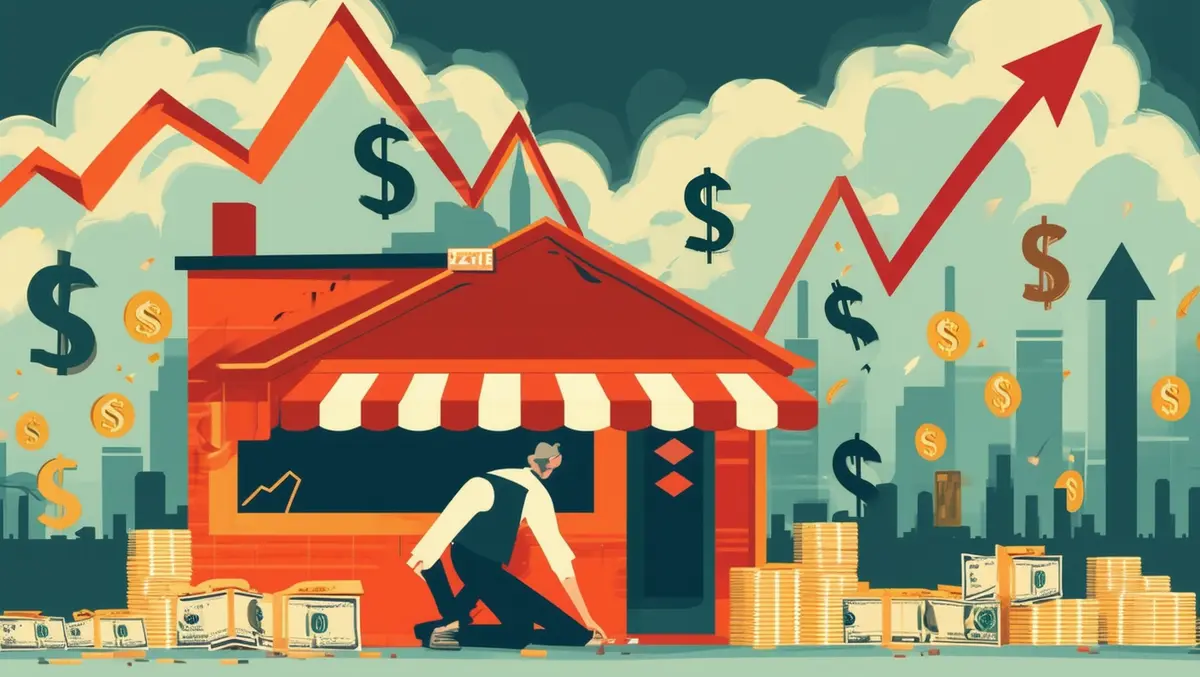
A chokehold on small businesses: how late payments are hindering economic growth
Have you noticed lots of empty windows and 'for lease' signs on your local high street? That's because many of our Kiwi small businesses are closing. The current climate of higher interest rates and inflation are sadly seeing many Kiwi SMEs shutting their doors.
When inflation and interest rates are high, the value of having positive cashflow is so much more important. In 2023, late payments hit small businesses especially hard.
In fact, the cost of late payments to Kiwi small businesses was more than three quarters of a billion dollars last year, according to our latest Xero Small Business Insights.
The cost of late payments to Kiwi small businesses jumped a staggering 81% from an estimated $456 million in 2021 to $827 million in 2023.
When small businesses are paid late, this impacts their ability to pay their own suppliers, wages, insurance, and operating costs.
Small businesses make up 97% of our economy and there's no doubt that the current economic climate is putting business owners under pressure.
Some are having to prioritise keeping their lights on over caring for themselves and their whanau, trying to balance income and expenditure.
This is exacerbated when they're not getting paid on time - or worse, when they're having to wait weeks (and sometimes months) to get the cash they're owed.
The financial impact of late payments on our small businesses is clear. According to recent Centrix data, retail business liquidations are up 36% year-on-year and hospitality liquidations are up 27% year-on-year across the country.
Late payments are locking funds away from small businesses, restricting growth, and forcing closures that could have been avoided.
One option being put forward is a voluntary payments code, where businesses of a certain revenue size will provide more transparency into their payment practices, providing smaller businesses more information upon which to base their decisions about who to transact with.
However, the challenge with a voluntary code is expecting big businesses at large to hold themselves accountable.
A voluntary code has not worked well in Australia, but I hope the results will be different here in Aotearoa, New Zealand.
Many SMEs are still in survival mode, battling Covid in new territory, which seems to be just as challenging. As a country, we need to do everything we can to safeguard the future of small businesses across Aotearoa, New Zealand.
During recessionary times, the value of reliable cash flow increases hugely. Access to capital is essential for small businesses to keep the engine running.
Additionally, small businesses should do everything they can to streamline the payments process, making it as simple as possible to get paid.
Simple measures like adding a 'Pay Now' button to invoices can hasten a customer's payment of an invoice, which means money in the bank faster.
Small businesses keep our communities connected. They're where we grab our coffee in the morning, it's who cuts our hair, it's who landscapes our gardens and helps us care for our children. Supporting and safeguarding small businesses helps all New Zealanders.
Making sure our small businesses are paid on time is essential to keep our economy moving forward, especially in these challenging times.

